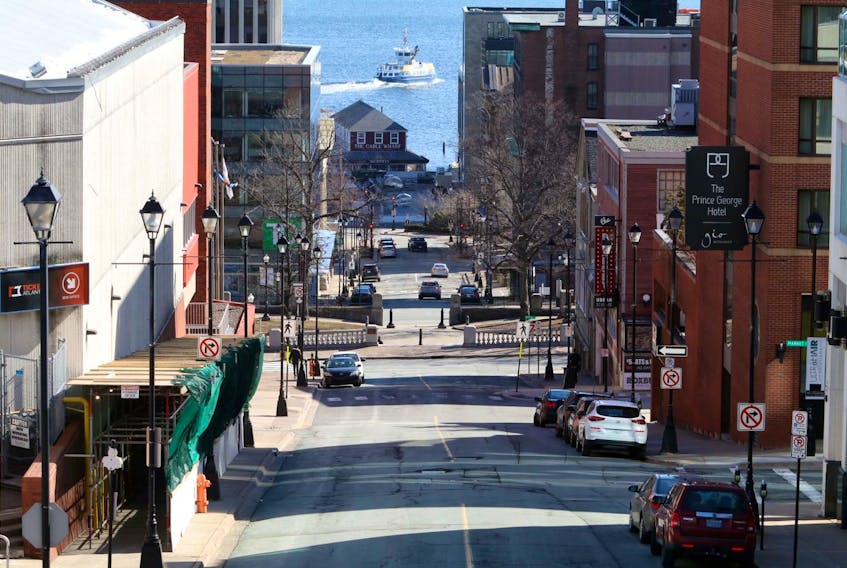Businesses in downtown Dartmouth and Halifax will be in it for the long haul when it comes to recovering from the pandemic.
While most sectors have entered the stabilization phase of Halifax Regional Municipality’s COVID-19 economy response and recovery plan, Wendy Luther says some are still suffering.
“Some segments of our economy and our society were hit much harder than others,” Luther, president of Halifax Partnership, told Halifax regional council during a recovery update Tuesday.
The tourism industry is in deep as the pandemic resulted in cancelled events and restricted travel.
While some within the Atlantic bubble chose Halifax as their vacation destination, total rooms sold in the Halifax region since the pandemic are down 73 per cent in comparison to last year. Visits are estimated to be down by 1-1.5-million overnight stays.
“A continued decline in the tourism sector would mean approximately $900 million per year in loss spending in Halifax alone,” Luther said.
Jacques Dube, Halifax’s chief administrative officer, said economists are predicting a significant drop in retail spaces and restaurant closures over the fall and into the winter.
“The effects of that will be over the next two years and our revenue streams will be impacted significantly, I believe, especially in the downtowns of Halifax and Dartmouth where you’re going to have vacancies as a result of closures of certain hotels, restaurants, bars,” Dube said.
Residential real estate
Dube said not only is he concerned about spaces that contain retail, restaurants and bars facing challenges to rent those spaces, but is also worried about the residential side.
“The affordability issue is becoming problematic,” Dube said. “The crisis, as you know, has actually increased value, not decreased value on the residential side.”
Luther said Halifax resale prices were up 11.1 per cent since July 2019, the second highest in Canada, with an average price of $373,000 recorded in August.
The region also saw the largest sales number since 2012 with 2,352 houses sold in June, July and August, in comparison to 1,673 on average.
“The residential side is clearly a problem because demand is not meeting supply, so people are reluctant to let people into their homes and as a result anything that’s put on the market now is creating greater offers than what the asking price is being published at,” Dube said.
Dube said the municipality is working with the private sector to address the inventory issue, as well as not-for-profit organizations to try to create affordable housing units.
Financial assistance
Dube said while the municipality welcomes the financial assistance from the Nova Scotia Municipal Finance Corporation short-term borrowing program, it needs other levels of government to provide financial support.
“As we have all stated many times, the impact of COVID-19 will be felt by the municipality for years to come in decreased tax revenue and potentially shrinking assessment base,” he said.
Dube said the conversations with the federal and provincial government have been advancing and their involvement is “effectively paramount to our collective success as Nova Scotians going forward.”









